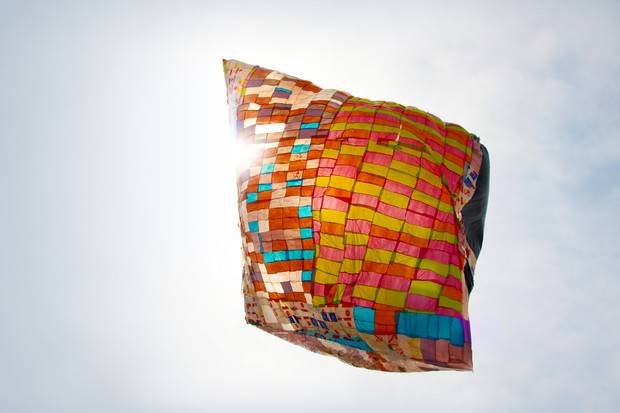Stalker, the Unlikely Video Game That Converses with Andrei Tarkovsky
The imaginary sites where wishes come true can be dangerous and disturbingly entertaining.
Of all the fascinating and strange oeuvre of Andrei Tarkovsky, Stalker (1979) seems an unlikely candidate to be turned into a video game (but then, if someone already dared to turn Joyce’s Ulysses into one, this falls in place). After all, the history focuses on a mysterious Zone where wishes come true and there is little action, bearing in mind that the philosophical dialogs and the musings on existence take up most of the scenes.
The mysterious lands where unconscious dreams become reality (Peter Pan and Wendy’s Neverland or Oz in The Wizard of Oz) are no strangers to cinema and literature; however, Tarkovsky’s vision is original given that (spoiler alert!) the guide that takes the main characters to the Zone, the Stalker, maintains an animated and intriguing philosophical conversation with them but without either of the clients (a writer and a scientist) eventually making a wish.
The making of the wish is what makes Tarkovsky’s version of Stalker, based on Arkady and Boris Strugatsky novella, Roadside Picnic, interesting. The videogame of Stalker takes its scenes and action from the dangers of the novella, more than from Tarkovsky’s philosophical meanderings, but without that lessening the importance of the Russian’s masterpiece.
There are not many zombies in Tarkovsky’s film, but the scenery (a kind of post-atomic Chernobyl) is present in the videogame. Like the two faces of a rusty coin, Tarkovsky’s Stalker and the videogame S.T.A.L.K.E.R. are two explorations of the universe of the Strugatsky novella; a place where fervent dreams can become reality, but where the danger of achieving them can cost one their sanity or their life.
Related Articles
When ancient rituals became religion
The emergence of religions irreversibly changed the history of humanity. It’s therefore essential to ask when and how did ancient peoples’ rituals become organized systems of thought, each with their
Seven ancient maps of the Americas
A map is not the territory. —Alfred Korzybski Maps are never merely maps. They’re human projections, metaphors in which we find both the geographical and the imaginary. The cases of ghost islands
An artist crochets a perfect skeleton and internal organs
Shanell Papp is a skilled textile and crochet artist. She spent four long months crocheting a life-size skeleton in wool. She then filled it in with the organs of the human body in an act as patient
A musical tribute to maps
A sequence of sounds, rhythms, melodies and silences: music is a most primitive art, the most essential, and the most powerful of all languages. Its capacity is not limited to the (hardly trivial)
The enchantment of 17th-century optics
The sense of sight is perhaps one the imagination’s most prolific masters. That is why humankind has been fascinated and bewitched by optics and their possibilities for centuries. Like the heart, the
Would you found your own micro-nation? These eccentric examples show how easy it can be
Founding a country is, in some ways, a simple task. It is enough to manifest its existence and the motives for creating a new political entity. At least that is what has been demonstrated by the
Wondrous crossings: the galaxy caves of New Zealand
Often, the most extraordinary phenomena are “jealous of themselves” ––and they happen where the human eye cannot enjoy them. However, they can be discovered, and when we do find them we experience a
Think you have strange reading habits? Wait until you've seen how Mcluhan reads
We often forget or neglect to think about the infinite circumstances that are condensed in the acts that we consider habitual. Using a fork to eat, for example, or walking down the street and being
The sky is calling us, a love letter to the cosmos (video)
We once dreamt of open sails and Open seas We once dreamt of new frontiers and New lands Are we still a brave people? We must not forget that the very stars we see nowadays are the same stars and
The sister you always wanted (but made into a crystal chandelier)
Lucas Maassen always wanted to have a sister. And after 36 years he finally procured one, except, as strange as it may sound, in the shape of a chandelier. Maassen, a Dutch designer, asked the










